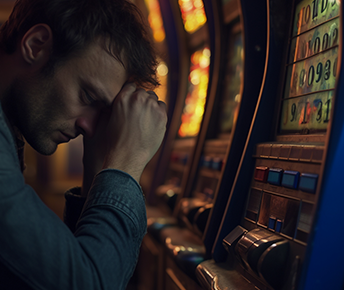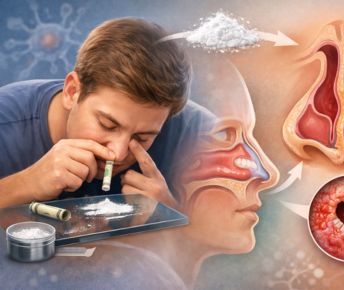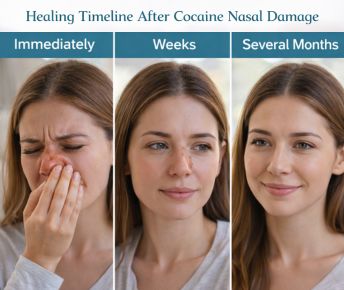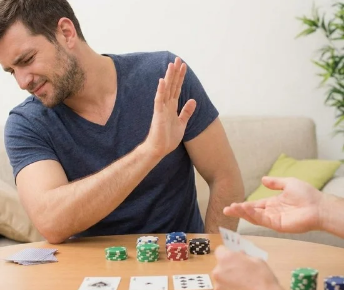Introduction
Gambling often begins as harmless fun, a quick thrill at an online casino game, a few rounds of sports betting with friends, or even a wager on a favorite cricket match. At first, it may feel exciting, even harmless, offering a rush of adrenaline and the possibility of a win. But for some, that excitement can quickly spiral out of control. What starts as entertainment gradually becomes a cycle of compulsive betting, where larger and more frequent wagers are needed just to recreate the same high.
This condition, known as gambling addiction, is more than a bad habit. It’s a recognized mental health condition. People struggling with it often find themselves unable to stop, even as gambling begins to damage their finances, relationships, work, and emotional well-being. It can lead to mounting debt, feelings of shame or guilt, and in many cases, anxiety or depression.
The most difficult part is that many individuals don’t recognize the signs until the problem has deeply affected their lives. That’s why understanding the early warning signs of gambling addiction is so important. Recognizing the problem early offers the best chance of breaking free before the consequences become overwhelming.
What is Gambling Addiction?
Gambling addiction, also called gambling disorder, is a recognized mental health condition where the urge to bet becomes uncontrollable. What begins as a form of entertainment gradually turns into a compulsion that takes over daily life. At this stage, gambling is no longer about fun or relaxation; it becomes a cycle of chasing wins, covering losses, and needing to gamble more often just to feel the same thrill.
This happens because gambling directly affects the brain’s reward system. Each bet releases a surge of dopamine, the same feel-;od chemical linked with other addictions. Over time, the brain adjusts and needs more gambling to produce the same effect. Just like with drugs or alcohol, this creates tolerance, cravings, and withdrawal symptoms when a person tries to stop.
Globally, studies suggest that about 1–2% of people meet the criteria for gambling disorder, but many more are at risk. It affects men and women of all ages, often creeping in quietly until it causes serious financial, emotional, and social problems.
Certain factors make people more vulnerable. These include personality traits like impulsivity or competitiveness, a history of trauma, financial stress such as debt or unemployment, and having a family history of addiction. Mental health challenges such as anxiety, stress, or depression can also make someone more likely to use gambling as an escape.
Modern technology adds another layer of risk. With smartphones and apps, gambling is accessible 24/7, whether through online casino games, sports betting, or cricket wagers. This constant availability means that temptations are always within reach, making it harder for those struggling to resist.
At its core, it is not about a lack of willpower. It’s a complex condition where a person feels trapped in a cycle they cannot easily control, often continuing to gamble even when it creates mounting personal and financial problems. Recognizing this as a health issue is the first step toward real recovery.
What are the Signs of Gambling Addiction?
Gambling addiction often hides in plain sight. Many people convince themselves they are just having fun or that a big win is right around the corner. But over time, certain warning signs begin to show. Gambling addiction is usually marked by continuing to bet even when it causes clear harm, and by needing to place bigger wagers just to feel the same excitement. Here are some of the most common signs to look out for:
- Preoccupation with Gambling: People struggling with gambling addiction often think about betting constantly. They may find themselves planning the next game, calculating possible winnings, or daydreaming about the big win. This obsession can make it hard to focus on work, relationships, or daily responsibilities.
- Loss of Control: Over time, gambling loses its original thrill. To recreate that feeling of excitement, individuals often bet larger amounts or gamble more frequently. This is known as tolerance, and it’s a major red flag the same bet that once felt exciting no longer satisfies, leading to escalating risks.
- Failed Attempts to Stop: A hallmark of addiction is the inability to quit, even with ;od intentions. Someone may promise themselves or loved ones that they’ll stop, only to relapse days or even hours later. The frustration of failed attempts often leads to guilt, irritability, and restlessness when trying to cut back.
- Gambling to Escape: Many people gamble not just for entertainment, but as a way to numb or escape from stress, loneliness, depression, or anxiety. Gambling temporarily distracts from emotional pain, but in the long run it creates more problems, trapping people in a harmful cycle.
- Chasing Losses: Instead of walking away after a loss, a compulsive gambler often feels an overwhelming need to “win it back.” This leads to riskier bets and larger amounts, creating a spiral of mounting losses and deeper financial trouble. The chase becomes endless and self-destructive.
- Lying or Hiding: Instead of walking away after a loss, a compulsive gambler often feels an overwhelming need to “win it back.” This leads to riskier bets and larger amounts, creating a spiral of mounting losses and deeper financial trouble. The chase becomes endless and self-destructive.
- Jeopardizing Life Areas: As gambling takes center stage, other important parts of life begin to suffer. Work or studies may be neglected, relationships strained, and money borrowed to cover bets. Over time, gambling can jeopardize careers, families, and financial security.
If several of these signs feel familiar, it may point to a gambling problem. Even noticing just a few of them is reason enough to pause, reflect, and seek support, because the earlier the problem is addressed, the easier it is to turn things around.
Causes and Risk Factors Behind Gambling Addiction
There isn’t a single cause of gambling addiction. Instead, it develops through a combination of biological, psychological, and social factors that interact over time.
One important factor is the brain’s chemistry. Gambling triggers large releases of dopamine, the feel-;od chemical in the brain. Over time, the brain adapts and becomes less sensitive to dopamine. This means a person needs to gamble more often, or with higher stakes, to feel the same rush of excitement.
Genetics can also play a role. If someone has a family history of addiction, their risk of developing a gambling problem is higher. Personality traits matter too, people who are impulsive, competitive, restless, or easily bored are more likely to develop compulsive gambling habits.
Other risk factors include early exposure to gambling, pressure from peers or social groups, and even certain medications. Mental health issues like depression, anxiety, or substance use can also push people toward gambling, as they may use betting as a way to escape negative emotions.
Nowadays, access to gambling is easier than ever. Online casino games, cricket betting platforms, and sports betting apps are available around the clock. With the ability to place bets instantly from a smartphone, temptation is always close at hand. This constant availability doesn’t just make it easy to start gambling, it also makes it harder for people who are trying to quit, often leading to relapse.
Gambling addiction is caused by a mix of brain chemistry, personality, environment, and accessibility. Understanding these factors can help identify who may be more vulnerable and why seeking help early is so important.
Different Types of Gambling and Their Reach
Gambling takes many shapes, from lotteries and bin; to slot machines and classic casino games like poker, blackjack, or roulette. Sports betting is another major form, with people placing wagers on football, horse racing, cricket, and countless other events. In countries like India, online cricket betting has drawn millions of players, even though it is technically illegal in most regions.
Today, almost all these activities have moved online. With just a smartphone, anyone can spin virtual slot machines, join live casino tables, or place bets on international sporting events at any time of day. While this convenience may seem harmless, it also makes gambling far more accessible and therefore riskier. Local betting operators, often called bookies, still exist and usually work outside legal systems. Gambling through unregulated bookies or shady websites can be particularly dangerous, since there are no safeguards to ensure fairness or protect winnings.
Ultimately, whether it’s casino chips, lottery tickets, or a betting app on your phone, the risks remain the same. The easier it is to access gambling, the easier it becomes to gamble impulsively. Understanding this accessibility factor is key to recognizing how quickly casual play can spiral into addiction.
Impact and Consequences of Gambling Addiction
Gambling addiction ripples into every part of life. Some of the major consequences include:
- Financial Ruin: Gambling often leads to overwhelming debt, maxed-out credit cards, unpaid bills, or even bankruptcy. Some people lose their homes, savings, or businesses in an effort to keep funding their habit.
- Strained Relationships: Constant lying, secrecy, or borrowing money damages trust with loved ones. Family members may feel betrayed or burdened, and in severe cases, marriages and friendships break apart.
- Mental Health Decline: People with gambling addiction frequently struggle with anxiety, depression, and chronic stress. Feelings of guilt and hopelessness are common, and research shows a heightened risk of suicidal thoughts in severe cases.
- Physical Health Problems: Stress from gambling can take a toll on the body, leading to sleep problems, headaches, digestive issues, or worsening of pre-existing medical conditions.
- Legal and Criminal Issues: In desperation to cover losses, some individuals turn to theft, fraud, or embezzlement. This not only worsens financial troubles but can also result in criminal charges, job loss, and imprisonment.
- Overall Life Instability:Gambling addiction rarely remains hidden for long. It tends to spill into every aspect of life, creating a downward spiral that becomes harder to stop the longer it continues. Early recognition and intervention are key to breaking this cycle.
How to Quit Gambling & Treatment
Quitting gambling is not easy, but many people do it successfully with the right help and strategies.
- Acknowledge the Problem: The first step is admitting that gambling has become destructive. Recognizing the issue opens the door to recovery.
- Make Lifestyle Changes: Simple but powerful actions include deleting gambling apps, blocking betting websites, setting strict budgets, and limiting your free time to avoid temptation. Sharing your goings with a trusted friend or family member adds accountability and support.
- Support Groups: Groups like Gamblers Anonymous provide a safe space to share experiences, receive encouragement, and stay motivated through the recovery process.
- Therapy and Counseling: Professional counseling is one of the most effective tools. Cognitive Behavioral Therapy (CBT) is especially helpful, as it teaches people to recognize gambling triggers, manage stress, and replace harmful habits with healthier coping skills. Therapy also helps rebuild damaged relationships and regain financial control.
- Rehabilitation Programs For many, joining a structured rehab program is the most effective way to break free. Inpatient and outpatient programs offer therapy sessions, group support, and educational tools designed specifically for gambling addiction. Residential treatment is often recommended for severe cases.
- Medication Support While there are no specific medications for gambling disorder, treating related conditions like anxiety or depression with prescribed medication can greatly support recovery.
Recovery is a journey, but with the right mix of support, therapy, and structure, it is possible to regain control and build a healthier future.
Conclusion
Gambling addiction is a serious mental health condition that can affect anyone, regardless of age, background, or income. It can silently infiltrate daily life, damaging finances, relationships, and emotional well-being. Recognizing the signs early and understanding the causes is the first step toward regaining control.
The ;od news is that recovery is possible. Whether through self-help strategies, support groups, therapy, or professional rehabilitation programs, individuals struggling with gambling can rebuild their lives and break free from the cycle of addiction. Seeking help is not a sign of weakness but a courageous step toward a healthier, more balanced life.
Reach out to qualified professionals, join supportive communities, and explore structured treatment options. With the right guidance and determination, a life free from compulsive gambling is entirely achievable.
Frequently Asked Questions
- How do I stop my gambling addiction?
To quit gambling, start by recognizing the problem and seeking gambling addiction treatment. Limit access to online casino games, online sports betting, or online cricket betting, and get support from therapy or responsible gaming programs. - Is gambling a mental illness?
Yes, compulsive gambling is a recognized mental health condition called gambling addiction. It affects behavior, decision-making, and can lead to emotional or financial problems. - What therapy is best for gambling?
Cognitive Behavioral Therapy (CBT) is highly effective for gambling addiction treatment, helping change harmful thoughts, manage cravings, and control urges related to bookie gambling or online betting. - How to stop gambling permanently?
Long-term recovery involves gambling addiction treatment, therapy, support groups, and responsible gaming strategies. Avoid online casino games and sports betting apps, and address any underlying mental health issues to maintain control.
























 Yes, many offer serene environments and solid therapeutic frameworks. However, quality varies, so it’s essential to research accreditation, staff credentials, and therapeutic depth.
Yes, many offer serene environments and solid therapeutic frameworks. However, quality varies, so it’s essential to research accreditation, staff credentials, and therapeutic depth.




